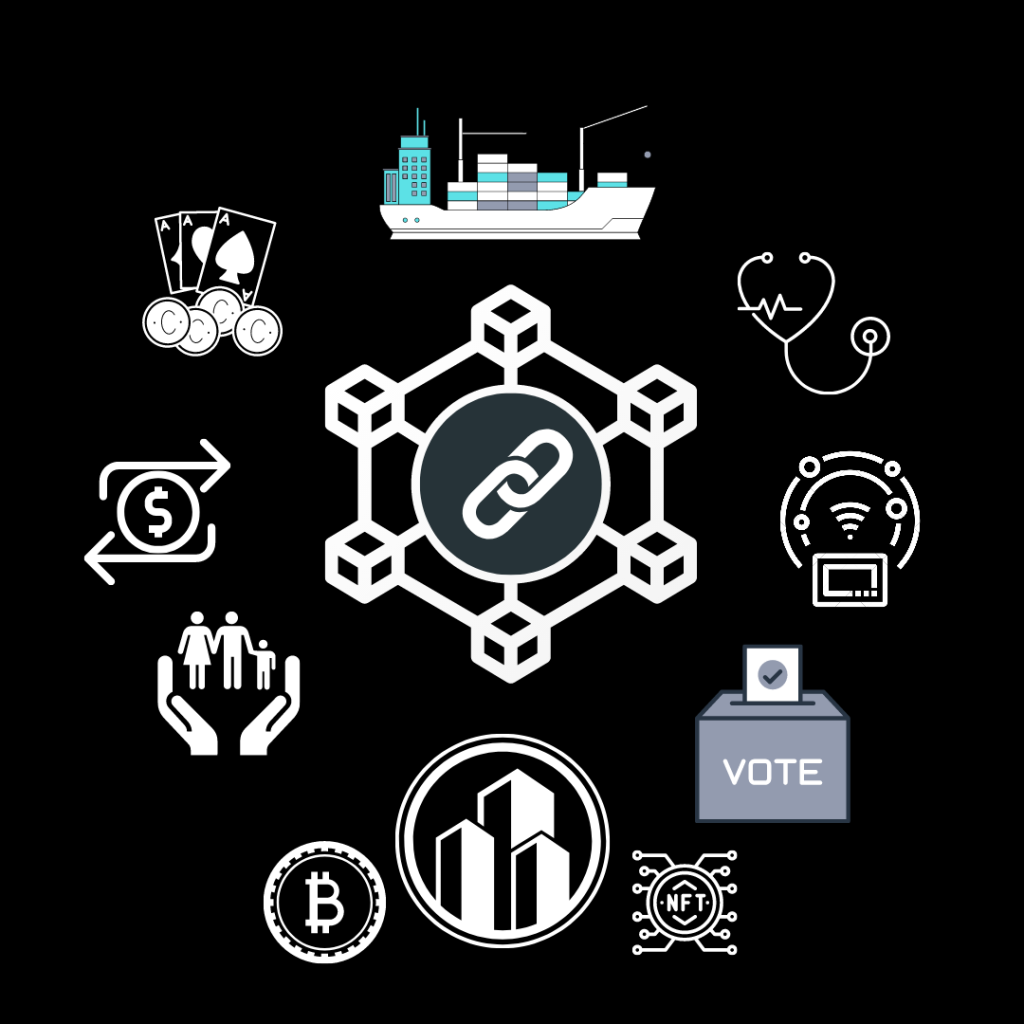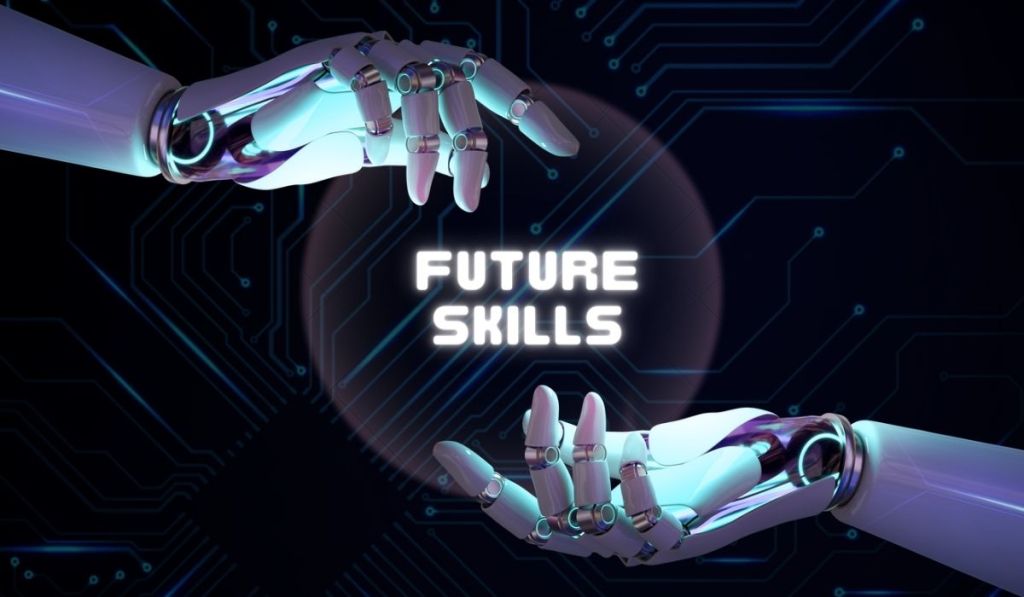As we move further into the 21st century, the rapid advancements in technology and shifting global landscapes are reshaping the job market and demanding new sets of skills. In 2024, the world is set to witness even more dynamic changes, and individuals who wish to thrive in their careers must embrace continuous learning. To help you stay ahead in this ever-evolving world, we’ve compiled a list of the top 10 skills you must learn in 2024. From technical expertise to soft skills, these abilities will empower you to navigate challenges and seize opportunities in the coming year.
1. Artificial Intelligence and Machine Learning

Artificial Intelligence (AI) and Machine Learning (ML) have revolutionized industries across the board. These transformative technologies have the potential to shape the way we live and work in the coming years. As we look ahead to 2024, it is increasingly evident that AI and ML will continue to be major forces driving innovation and progress.
In recent years, AI has gained significant momentum in multiple industries. From healthcare to finance, retail to manufacturing, organizations are leveraging AI and ML to gain insights, make informed decisions, and streamline operations. AI-powered algorithms are being used to analyze vast amounts of data, enabling businesses to identify patterns, predict trends, and automate processes that were once time-consuming and resource-intensive.
In the field of data analysis, AI and ML are indispensable tools. With their ability to crunch massive datasets and discover hidden patterns, these technologies help businesses gain valuable insights and make data-driven decisions. The potential for AI and ML to revolutionize data analysis is immense, and we can expect to see more advanced algorithms and models being developed in the coming years.
Another area where AI and ML continue to make a significant impact is natural language processing (NLP). NLP algorithms enable computers to understand, interpret, and interact with human language, facilitating communication between humans and machines. This technology has already transformed traditional customer support systems, with chatbots and virtual assistants becoming more prevalent in various industries. As AI and ML algorithms become more sophisticated, we can expect NLP to play an even more prominent role in enhancing customer experiences and streamlining business operations.
Looking ahead, it is vital for individuals and businesses to embrace AI and ML technologies. With the rapid pace of technological advancements, having a solid foundation in AI and ML will be essential for both personal and professional growth. Investing in AI and ML education and training will open up a world of opportunities, allowing individuals to excel in fields such as data science, robotics, and automation.
In conclusion, as we navigate the ever-evolving landscape of technology, it is clear that AI and ML will continue to shape our future. From accelerating data analysis to revolutionizing customer interactions, these technologies offer immense potential for innovation and growth. By embracing AI and ML and staying ahead of the curve, individuals and businesses can thrive in the exciting world of tomorrow.
2. Cybersecurity

In today’s rapidly evolving digital landscape, cybersecurity has become a paramount concern for individuals, businesses, and organizations worldwide. With the increasing reliance on technology and the proliferation of online platforms, the risk of cyber threats continues to grow at an alarming rate. As a result, investing in robust cybersecurity measures has become a necessity rather than a luxury.
To combat the ever-evolving tactics employed by malicious individuals and groups, organizations are now enhancing their security defenses and adopting proactive approaches to safeguard their valuable assets. Ethical hacking, also known as penetration testing or white hat hacking, has emerged as an essential practice to assess and identify vulnerabilities in computer systems and networks. By simulating real-world attacks, ethical hackers help organizations identify weaknesses that could potentially be exploited by malicious actors, enabling them to patch and bolster their defenses effectively.
Moreover, vulnerability assessment plays a crucial role in identifying security weaknesses and potential entry points that cybercriminals may exploit. This proactive approach allows organizations to address and mitigate vulnerabilities before they can be leveraged for malicious purposes, ultimately reducing the risk of successful cyber attacks.
In addition to ethical hacking and vulnerability assessment, security analytics is becoming increasingly vital in the fight against cyber threats. By utilizing advanced tools and technologies, security analytics allows organizations to collect, analyze, and interpret massive amounts of data to detect and respond to potential security incidents promptly. This data-driven approach provides valuable insights into network activity, helping organizations identify patterns, anomalies, and potential threats, allowing them to take proactive measures to prevent or mitigate attacks.
Acquiring skills in ethical hacking, vulnerability assessment, and security analytics can open doors to exciting career opportunities in cybersecurity. With the demand for skilled professionals surpassing the available talent, individuals who possess these in-demand skill sets can position themselves as invaluable assets in protecting sensitive information, securing critical infrastructures, and defending against cyber attacks.
In conclusion, as the digital landscape continues to expand, organizations must prioritize and invest in robust cybersecurity measures. Ethical hacking, vulnerability assessment, and security analytics are integral components in this fight against cyber threats, providing organizations with the tools and knowledge necessary to protect their valuable assets. By staying proactive, vigilant, and continuously adapting to emerging threats, we can ensure a safer digital future for all.
3. Digital Marketing

With the ever-evolving landscape of technology and the increasing reliance on online platforms, digital marketing is set to play a pivotal role in the success of businesses in the coming years. As we look ahead to 2024, it becomes apparent that having a strong understanding of various digital marketing strategies will be more important than ever.
Search Engine Optimization (SEO) continues to be a vital aspect of digital marketing. Having the ability to optimize websites and content for search engines will determine how well a business can compete in the online arena. By incorporating relevant keywords, creating high-quality content, and building backlinks, businesses can improve organic rankings and increase their visibility, ultimately driving more traffic and conversions.
Content marketing, also known as the art of storytelling, will continue to be a powerful tool in engaging and connecting with target audiences. It goes beyond simply promotional messaging and focuses on delivering valuable and relevant content that resonates with consumers. By providing informative blog posts, captivating videos, or engaging social media posts, businesses can establish themselves as thought leaders, gain trust from their audience, and ultimately influence their purchase decisions.
Another crucial aspect of digital marketing is developing effective social media strategies. Social media platforms have become not only places for personal connections but also vital channels for businesses to reach their target customers. Creating engaging and shareable content, interacting with followers, and leveraging influencers can help businesses build a strong online presence and establish meaningful connections with their audience.
Data analytics is an essential component of digital marketing, enabling businesses to track the effectiveness of their campaigns, make informed decisions, and optimize their marketing efforts. Analyzing key metrics such as website traffic, conversion rates, and customer demographics provides valuable insights into consumer behavior, helping businesses tailor their marketing strategies for maximum impact.
Overall, in the ever-changing digital landscape, a sound understanding of SEO, content marketing, social media strategies, and data analytics will be crucial for businesses to stay competitive and achieve their goals in 2024. By embracing these digital marketing strategies, businesses can effectively reach their target audience, foster meaningful connections, and drive sustainable growth in the online realm.

4. Emotional Intelligence

In an increasingly interconnected world, emotional intelligence (EI) is a skill that will never lose its relevance. With the rapid advancements in technology and the rise of remote work, the ability to connect and understand others on a deeper level has become more important than ever.
Emotional intelligence encompasses a range of qualities, such as empathy, self-awareness, self-regulation, and social skills. It allows individuals to navigate complex social dynamics, build strong relationships, and effectively communicate their thoughts and feelings. In the professional realm, EI is often the differentiating factor between good and exceptional leaders.
Leaders with high emotional intelligence possess a deep understanding of their own emotions, which enables them to manage stress, make sound decisions, and effectively handle conflicts. They are also skilled at reading the emotions of others and responding empathetically, creating a positive work environment and fostering strong team dynamics.
In a team setting, emotional intelligence plays a pivotal role in collaboration and productivity. Individuals who are emotionally intelligent are better equipped to listen actively, communicate clearly, and resolve conflicts constructively. By understanding and addressing the emotions and needs of each team member, they can create a cohesive and harmonious work environment where everyone feels valued and motivated.
Furthermore, emotional intelligence is not limited to interpersonal relationships. It also influences how individuals perceive and manage their own emotions. Those with higher EI are more likely to be self-motivated, resilient in the face of challenges, and capable of adapting to change. They have a heightened self-awareness that allows them to recognize their strengths and weaknesses, fostering personal growth and continuous improvement.
In conclusion, the importance of emotional intelligence cannot be overstated. It is a powerful skill that contributes to personal and professional success. Nurturing EI can lead to stronger relationships, effective leadership, and a positive work culture. As we continue to navigate a rapidly evolving world, the value of emotional intelligence will only increase, making it a skill worth developing and honing.
5. Creative Problem-Solving

Innovation and adaptability are highly sought-after traits in the modern workforce. Developing creative problem-solving skills will not only set you apart from others but also enable you to approach challenges with an open mind and come up with inventive solutions. Embracing design thinking, a human-centered approach to problem-solving, can be a powerful tool in your arsenal. By understanding the needs and perspectives of those affected by a problem, you can more effectively identify the root causes and develop solutions that truly address the underlying issues.
One aspect of fostering creativity and innovation is encouraging a culture of experimentation and risk-taking. By creating an environment where failure is seen as an opportunity to learn and grow, individuals are more likely to take risks and explore new ideas. This can lead to breakthrough innovations and unexpected solutions.
Furthermore, in today’s rapidly changing world, it is crucial to keep up with the latest trends and technologies. Staying informed about emerging technologies and industry developments can give you a competitive edge and help you identify potential opportunities for innovation. Additionally, seeking out diverse perspectives and collaborating with individuals from different backgrounds can spark fresh ideas and lead to unique solutions.
Ultimately, developing your creative problem-solving skills and cultivating an innovative mindset requires practice and continuous learning. Whether through attending workshops, reading books on creativity, or participating in brainstorming sessions, investing in your own development will pay off in the long run. Keep an open mind, embrace new challenges, and never be afraid to think outside the box. Remember, innovation is not limited to a select few; anyone can cultivate an innovative mindset and make a meaningful impact in their work and beyond.
6. Cross-Cultural Competence

In today’s interconnected and globalized world, cross-cultural competence has become an increasingly valuable skill. As businesses expand their reach across borders and people from different backgrounds come together, it is essential to understand and appreciate the nuances of various cultures.
Having cross-cultural competence allows individuals to effectively navigate multicultural environments, cultivate meaningful relationships with people from diverse backgrounds, and thrive in international business settings. It goes beyond simply being aware of cultural differences; it involves actively seeking to understand and respect the values, customs, and beliefs of others.
By developing cross-cultural competence, you can enhance your communication skills and effectively collaborate with colleagues from different cultures. This skill enables you to bridge language and cultural barriers, leading to greater efficiency and success in global teams and partnerships.
Furthermore, cross-cultural competence fosters empathy and mutual understanding. It helps build trust and strengthens relationships by demonstrating openness, respect, and inclusivity. When individuals embrace diversity and approach cultural differences with curiosity and sensitivity, it promotes a collaborative and harmonious environment for all.
In an increasingly interconnected and diverse world, cross-cultural competence is not only beneficial but also necessary. It allows you to expand your horizons, gain a broader perspective, and build connections on a global scale. So, invest in developing your cross-cultural competence today, and unlock a world of opportunities tomorrow.
7. Data Literacy

In an increasingly data-driven world, the significance of data literacy cannot be overstated. As we look towards the future, it becomes apparent that the year 2024 will mark a turning point in the way businesses operate and make decisions.
Gone are the days when gut feelings and intuition held sway over the boardroom. Today, organizations of all sizes and across various sectors heavily rely on data to drive their strategic choices. Whether it’s understanding customer behavior, optimizing operations, or identifying new market opportunities, data has become the cornerstone of informed decision-making.
With this in mind, it is vital for professionals from all walks of life to develop their data literacy skills. Data literacy goes beyond simply knowing how to interpret numbers and graphs. It is the ability to effectively collect, analyze, and derive meaningful insights from data. It is about understanding the story that data tells and using it to guide business strategies.
By investing in data literacy, professionals gain a competitive advantage. They are equipped with the tools and knowledge to navigate the ever-evolving data landscape, helping them make informed decisions that drive success. Moreover, data literacy fosters a culture of innovation and collaboration within organizations, as employees are empowered to use data to support their ideas and contribute to overall growth.
Fortunately, there are numerous resources available to help individuals enhance their data literacy skills. From online courses and workshops to certifications and industry events, there are plenty of opportunities to gain the knowledge and expertise needed to excel in today’s data-driven world.
So, as we look ahead to 2024, let’s recognize the transformative power of data literacy. Embracing this skillset will not only benefit individuals in their careers but also contribute to the continued growth and success of organizations worldwide. Get ready to unlock the true potential of data and embark on a journey towards data-driven decision-making.
8. Critical Thinking

In today’s fast-paced and interconnected world, the ability to think critically has become increasingly important. As we navigate through an abundance of information and media, it is crucial to develop the skills necessary to discern fact from fiction, truth from propaganda, and reliable sources from unreliable ones.
Critical thinking is a multifaceted process that involves analyzing, evaluating, and interpreting information objectively. It goes beyond simply accepting or rejecting claims at face value, but rather, it requires a deeper exploration into the underlying evidence, logic, and reasoning behind any given statement or argument.
By fostering a habit of critical thinking, you empower yourself to make well-informed decisions in various aspects of life. Whether it’s assessing the validity of a news article, evaluating the reliability of a research study, or making reasoned choices about personal beliefs and values, critical thinking equips you with the tools to navigate the complexities of our ever-changing world.
One of the key components of critical thinking is questioning assumptions. Instead of accepting information blindly, it encourages you to inquire, challenge, and probe deeper into the foundations of any assertion. By interrogating underlying assumptions, you uncover hidden biases, inconsistencies, and gaps in reasoning, allowing for a more nuanced understanding of the subject matter.
Another crucial aspect of critical thinking is the ability to verify sources. With the proliferation of information online, it has become increasingly challenging to discern credible sources from those that are unreliable or misleading. By critically evaluating the expertise, authoritativeness, and objectivity of sources, you can ensure that the information you rely on is accurate and trustworthy.
Furthermore, critical thinking enables you to recognize the difference between objective facts and subjective opinions. It encourages you to consider multiple perspectives, weigh evidence, and arrive at well-reasoned conclusions based on a balance of logical reasoning and empirical evidence.
In essence, developing strong critical thinking skills not only enhances your ability to navigate complex information landscapes but also equips you with the tools to engage in meaningful discussions, make sound judgments, and contribute to a well-informed society. So, embrace the power of critical thinking and embark on a journey of intellectual growth and informed decision-making.
9. Blockchain Technology

Blockchain technology is revolutionizing the way we exchange and verify information. Originally known for its association with cryptocurrencies like Bitcoin, blockchain has now become a game-changer across multiple industries.
At its core, blockchain is a decentralized and distributed digital ledger that records transactions across a network of computers. This unique technology brings transparency, security, and immutability to data, making it highly appealing for various sectors.
In the realm of supply chain management, blockchain can ensure end-to-end transparency and traceability, thereby reducing fraud and counterfeiting. By creating an immutable record of every transaction, stakeholders can easily track the movement of goods and verify their authenticity. This technology can potentially transform how we manage and monitor supply chains, leading to improved efficiency and trust among participants.
In healthcare, blockchain holds immense promise. With patient data scattered across different systems, interoperability and data security challenges persist. By leveraging blockchain, medical records can be securely stored, accessed, and shared, empowering patients with more control over their health information. Additionally, blockchain can streamline clinical trials, reduce fraud in pharmaceutical supply chains, and enhance the provenance of medical devices and equipment.
Real estate is another sector that can benefit greatly from blockchain technology. Traditionally, the process of purchasing or transferring property involves multiple intermediaries, which can be time-consuming and costly. By implementing blockchain, property transactions can be executed seamlessly, eliminating the need for intermediaries and reducing the risk of fraud. Smart contracts, powered by blockchain, can automatically enforce and execute agreements, further streamlining the process.
As blockchain continues to evolve, it is important to stay informed and understand its potential impact. Whether you are an entrepreneur, a professional working in a specific industry, or simply a curious individual, diving into the fundamentals of blockchain and exploring its diverse applications can help you stay ahead in this rapidly changing digital landscape.
So, embrace the potential of blockchain technology and discover its transformative power. From supply chain management to healthcare and real estate, the possibilities are endless. Keep learning, exploring, and adapting to this innovative technology, and unlock new opportunities in the digital world.
10. Resilience and Adaptability

In a fast-paced and ever-changing world, cultivating resilience is a skill that can empower individuals to navigate through life’s challenges with confidence and strength. Resilience is not just the ability to bounce back from setbacks, but also the capacity to adapt, learn, and grow from them.
One key aspect of resilience is maintaining a positive mindset. By focusing on the opportunities within every challenge, individuals can shift their perspective and embrace a growth-oriented approach. This mentality allows them to see setbacks as stepping stones towards personal and professional development. It’s essential to remember that failure is not the end, but rather a learning experience that provides valuable insights.
Moreover, resilience requires individuals to build a support system of trusted friends, family, mentors, or even professional networks. These relationships can offer encouragement, guidance, and a listening ear during difficult times. Connecting with others who have faced similar obstacles can instill hope and provide a sense of belonging, reminding us that we are not alone in our struggles.
Practicing self-care is another crucial aspect of building resilience. Taking care of our physical, mental, and emotional well-being allows us to replenish our energy and cope more effectively with stress. Engaging in activities like exercise, mindfulness, journaling, or pursuing hobbies can help us recharge and maintain a balanced perspective.
Ultimately, resilience is an ongoing journey, not a destination. It requires embracing change, nurturing a growth mindset, and developing strong support networks. By cultivating resilience, individuals can not only survive but thrive in the face of adversity, enabling them to adapt and succeed in a world that is constantly evolving.
Remember, resilience is not about being unbreakable, but rather about being able to bounce back stronger and wiser than before. Embrace challenges as opportunities for growth, surround yourself with a supportive community, prioritize self-care, and never underestimate your capacity to overcome obstacles.
Conclusion
As we venture into 2024, the job market will demand new skills to navigate the ever-changing landscape. By mastering the top 10 skills mentioned above, you can position yourself for success in a highly competitive world. Embrace the learning journey and develop these skills proactively to stay ahead and seize opportunities in the coming year. Remember, adaptability and a growth mindset will be your greatest allies in the pursuit of career excellence in 2024 and beyond.







